The Wall Street Journal
 As the People's Republic of China approaches the 60th anniversary of its founding, Beijing has been unpleasantly surprised by the sudden outbreak of unrest on its long border with Burma. It's a lesson to China about the tenuous nature of its friendship with the junta, and a reminder that political change in Burma is in Beijing's best interests.
As the People's Republic of China approaches the 60th anniversary of its founding, Beijing has been unpleasantly surprised by the sudden outbreak of unrest on its long border with Burma. It's a lesson to China about the tenuous nature of its friendship with the junta, and a reminder that political change in Burma is in Beijing's best interests.The flare up began last month when Burmese forces attacked a recalcitrant militia in Kokang, near the Chinese border, forcing tens of thousands of refugees to flee into China's Yunnan province. A diplomatic battle soon ensued. China issued an uncharacteristically stern warning that Burma should "properly deal with its domestic issue to safeguard regional stability." Burmese military leaders hinted at Beijing support for their move against Kokang. And for the first time in history, the official Burmese press published a news item about the Dalai Lama visiting Taiwan.
The public bickering is noteworthy because China has invested heavily in its relationship with the junta. Beijing has given Burma decades of generous military assistance, built factories and infrastructure and mined Burma's wealth of resources. China is Burma's largest trading partner. On the political front, Beijing has acted as the Burmese regime's primary protector in the United Nations Security Council and other international fora to blunt the impact of Western sanctions and hostility against the military government.
The situation is likely to get worse before it gets better. Burma's military leaders are determined to clear away the remaining vestiges of their long-running insurgencies before heading into multi-party elections next year as part of the country's transition to "disciplined democracy." According to local reports, Burmese army units have already begun to move into Mongla, another autonomous former insurgent area, as well as the heavily armed and fortified northern and southern Wa areas along the Chinese and Thai borders. Tens of thousands of refugees from the northern Wa area have reportedly already fled into China, even as Kokang refugees return home.
The Burmese regime may also be egged on by its own citizens, many of whom harbor strong anti-Chinese sentiment. The junta's move against the ethnic Chinese border groups, long notorious for drug dealing and other criminal activities, has been quietly cheered by many Burmese. Chinese investment has done little to improve the lives of average Burmese and they view Beijing as propping up a hugely unpopular government.
It's clear that this is a critical moment for China in its relations with Burma. Beijing harbors a strong interest in promoting political transition in Burma to replace the long-standing military regime with a more stable and rational civilian government. Chinese frustration with Burma's inept and capricious military leaders is only thinly disguised. Beijing recognizes that the underlying causes of instability and violence will only become more acute the longer the current situation lingers.
Burma also poses a regional threat that China can't ignore. Not only does violence inside Burma spill over into China, Thailand, Bangladesh, and India, the porous border with China is rife with illegal trafficking in narcotics, contraband, and humans, and HIV/AIDS has spread from Burma into Yunnan province at an alarming rate. Burma's expanding military relationship with North Korea, rumored to include a nuclear technology component, threatens to bring a new security threat to nuclear weapons-free Southeast Asia.
Beijing could start by making overtures to various political forces inside Burma that are likely to emerge soon in a new parliamentary setting, not just the generals and their business cronies. China might also strengthen ties with other ethnic minorities, not just with ethnic Chinese groups in Burma, as well as with the political opposition and Burmese exiles.
China could also help revive the U.N. effort to encourage political dialogue and transition in Burma. If China were to support U.N. and other international efforts to promote free and fair elections in Burma in 2010, it would not only win plaudits from the international community, but would be warmly welcomed by a wide swath of the Burmese population of all ethnic races. It would be awkward for the military regime to take issue with this stance without suggesting that it had no intention of running free and fair elections.
Beijing could also send a powerful signal to both the generals and the Burmese public by holding back on arms supplies to the regime during the transition period. China is Burma's primary source of military equipment and has been seen in the past to deliberately curtail arms supplies to signal its displeasure with the regime. In light of the current unrest on the border, it might be an appropriate gesture by Beijing to refrain openly from fuelling further instability with new arms supplies and to reassure the Burmese public of its friendly intentions to support a peaceful and stable political transition.
China has been extremely patient with its badly behaved clients in Naypyitaw for more than two decades and is not likely to make an abrupt turn at this stage. But there's no doubt that it would be in the best interest of China and of the Burmese people for Beijing to start treating Burma like the regional security threat that it is.
Ms. Clapp was Charge d'Affairs for the U.S. embassy in Rangoon from 1999 to 2002.





















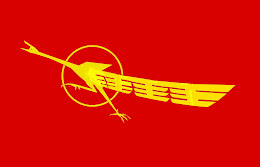





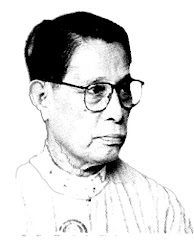


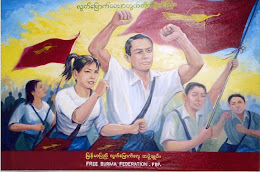





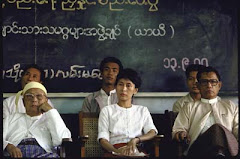

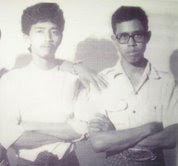

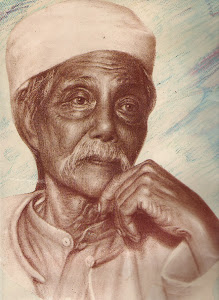
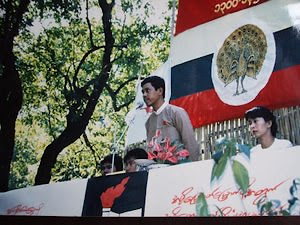
1 comment :
I think Myanmar issue is more of US interests than China. Ms Clapp’s statement of “political change in MM is in Beijing’s interests” was rather ironic with China’s policy on Myanmar.
To stir up anti-junta fervor in the CCP (China Communist Party), Ms Clapp agitated another allegation like “Junta may also be egged on by its own citizens, many of whom harbor anti-Chinese sentiment”. May I sound a word of alarm here that “most of the Myanmar and Chinese all over Myanmar are getting along and nothing is wrong”.
The flare up between Myanma Tatmadaw (Myanma Armed Forces) and Kokang drug warlord army last month was initiated because the rebels wanted their independent army; full power to decide rules on their own; China’s tip off of rebels building arms factory and set to increase mass production of illicit drugs. The final flare up point was deemed to be when the rebels refused to participate in the coming 2010 Myanmar elections. It was not as simple as to say “to clear away the remaining vestiges of Myanmar’s long-running rebellions”.
After all, the origin of Kokang drug warlords was the (KMT)Kuomintang (Nationalist Chinese). They fled from Chinese communist troops and infiltrated into Myanmar (Kokang region) with American aid playing a big role, as the air route over Shan mountain ranges opened. Since then, US and Myanmar relations became sour. This pushed Myanmar closer towards Beijing. When the KMT incident in Myanmar ended and most of them returned to Taiwan, some KMT high ranking officers and soldiers left behind in Kokang to establish heroin production and trade. This was how “The Golden Triangle” was born. Then they became warlords. It was all said in the CIA reports.
The junta I think has a right to annihilate drug warlords. But the junta always presented its case poorly and unwisely announced the “border guard scheme”. When it was failed, junta attacked Kokang rebel group. Thus, leaving the impression that Junta had intentionally commenced wiping out one after one armed groups. Myanmar military government was also hampered by the fact that it had not protested publicly in print media or online about the many earlier and more larger clashes in which its troops had been the victims. Junta even suppressed news of them, on the ground that civil strife was bad for domestic morale. The silence on the junta’s part made many in the West knew about the junta’s offensives only and saw it as a treacherous large-scale attack by the junta on innocent rebel armies which are in fact as horrific as any rebel armed group can be.
Believe me Ms Clapp, China knows not only Myanmar but also US, more than any one US citizen knows its own nation.
Anawrahtar
Post a Comment